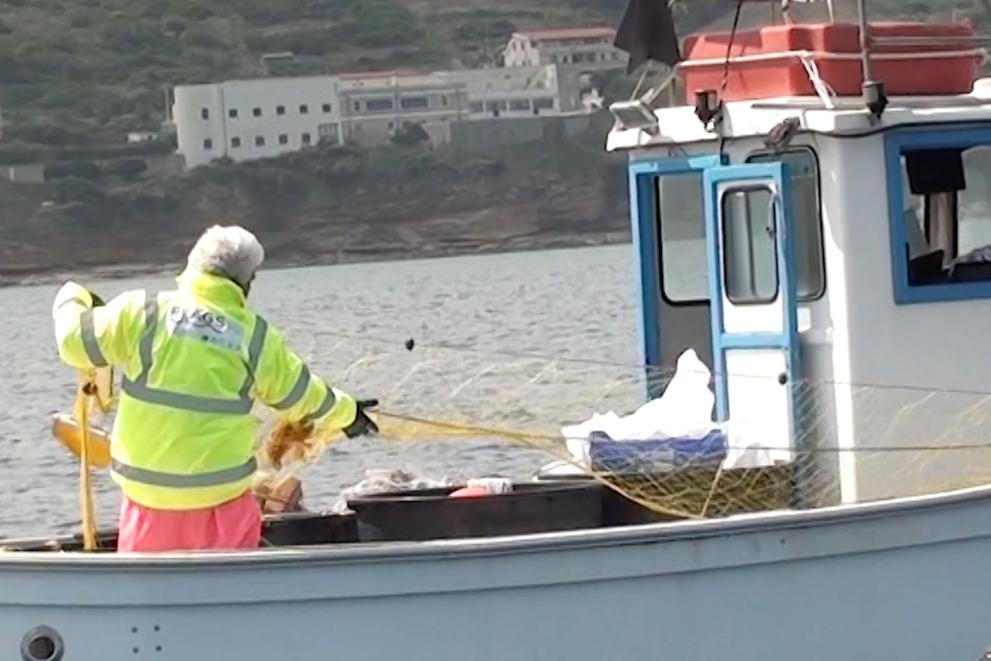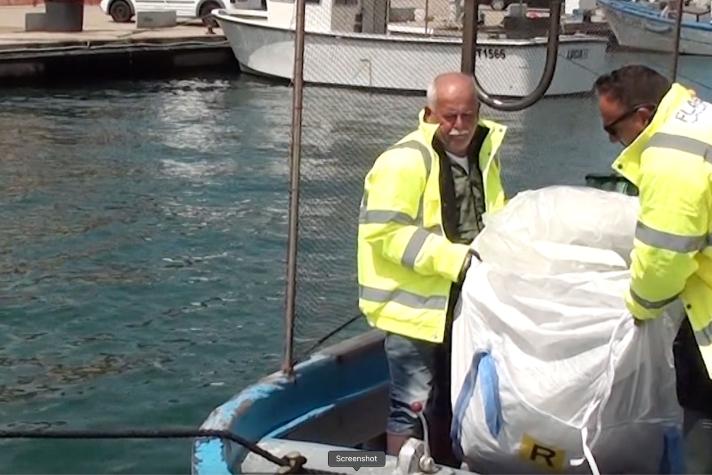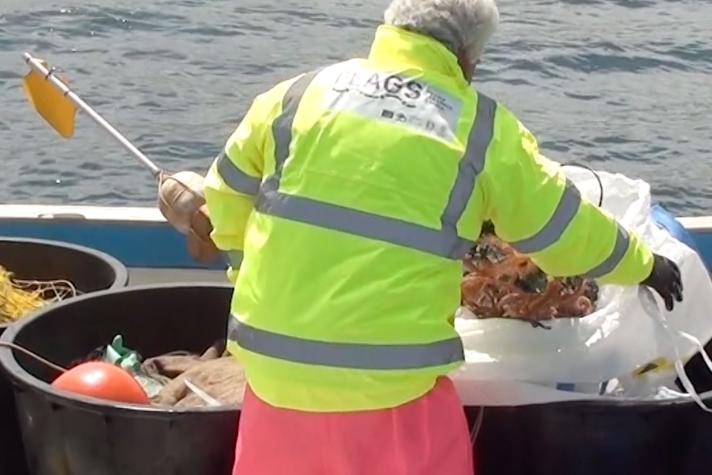
Bringing science and fisheries together to tackle a hidden menace: marine litter.
Scientists from Cagliari University and Fisheries Local Action Groups and Sardinian fishers joined forces to remove over two tonnes of waste from Sardinian waters. Recognising the shared threat to marine life and their livelihoods, fishers of all sizes – from trawlers to small boats – participated, united by a common goal: a cleaner, healthier sea.
The project FLAGS (Fishing Litter and Abandoned Gears in Sardinia) was supported by the European Maritime and Fisheries Fund.
Discoveries beneath the surface
During a scientific monitoring exercise, scientists from Cagliari University discovered more than they anticipated. Using remotely operated underwater vehicles, they found coral and more alarmingly, large amounts of marine litter in Sardinian seas.
Recognising the urgent need for a collaborative solution, they reached out to Sardinian fishers through their Fisheries Local Action Groups. The plan was to combine research activities like monitoring and mapping, with concrete actions to clean up the sea by collecting marine litter.
Launching the clean-up
The Fisheries Local Action Groups got to work, launching calls and selecting cooperatives and associations to participate. Financial support of €3,000 per participating cooperative or association made the project accessible to everyone, regardless of their size and type of boat. The project also set minimum quotas for the amounts of litter collected: 100 kg for larger trawlers, 50 kg for small trawlers (<12 m), and 20 kg for small boats.
Cleaning up
Over six months, dedicated fishers made 136 trips, collecting a total of 2400 kg of litter from depths of 10 m down to 800 m.
This impressive effort highlighted the scale of the problem and underscored and the fact that the initiative needs to be repeated. The detailed monitoring by fishers also provided scientists with valuable insights into the types of litter found at various depths.
Looking beyond Sardinia
The project succeeded in creating an easily replicable organisational model that can be adapted to different local contexts. It also demonstrated the power of involving and raising awareness in the local fishing community around protection of biodiversity, fish stocks and the sea.
An important group of small-scale fishers now has increased capacity of monitoring and registering marine litter, contributing to community awareness, and helping to mitigate the problem at its source.
This initiative paves the way for future collaborations between scientists and fishers, turning the tide towards a cleaner, healthier ocean.
As Dr Alessandro Cau, PhD, University of Cagliary, said: ‘Thanks to the project the trust between the University department and the individual fishers in the eight communities increased, and we hope this new network of relations can support other cooperation initiatives in the future.’
More information
FLAG Nord Sardegna - in Italian
FLAG Pescando – Progetto Fishing Litter and Abandoned Gears in Sardinia (FLAGS) - in Italian
Flags | FLAG Sardegna Sud Occidentale - in Italian
Collaborazione e raccolta rifiuti sostenibile. Conosciamo il progetto FLAGS – FLAG Sardegna Orientale- in Italian
Details
- Publication date
- 26 June 2024
- Author
- Directorate-General for Maritime Affairs and Fisheries






